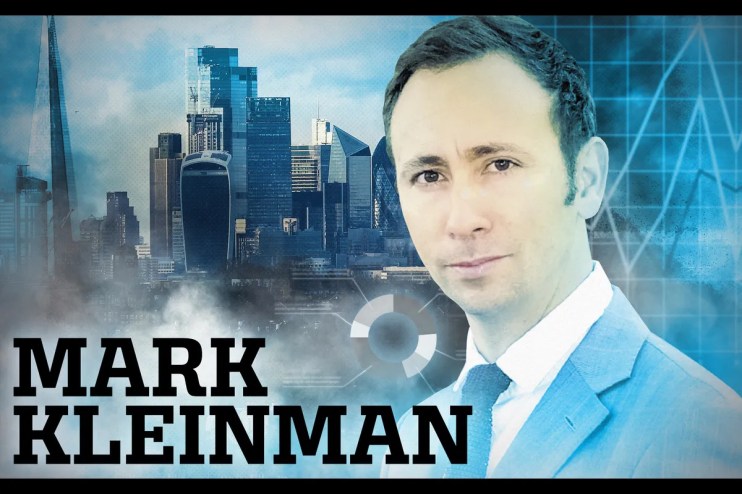Mark Kleinman: Is Reeves about to rip up ring-fencing?

Mark Kleinman is Sky News’ City Editor and the man who gets the Square Mile talking in his weekly City AM column
Is Reeves about to rip up ring-fencing?
Rachel Reeves rips up ring-fencing: it’s an alliteration aficionado’s dream headline. It’s also an increasingly realistic one, following an intervention by a quartet of UK bank chiefs last week urging the chancellor to repeal the most eye-catching reform introduced after the 2008 financial crisis.
In their letter to Reeves, the bosses of HSBC, Lloyds Banking Group, NatWest and Santander UK argued that abolishing the central tenet of Sir John Vickers’s Independent Commission on Banking was now necessary to deliver her wider economic growth ambitions.
“The consequences of ring-fencing are significant for banks’ operations, the services available to customers and investor attitudes towards the UK,” they wrote.
Moreover, they claimed that ring-fencing may actually have made the UK banking system less safe.
“Inflexibility within financial groups may…harm resilience, even if resolution is thought to be easier to execute should a failure occur. By separating the system into highly concentrated retail and non-retail banks, ring-fencing materially reduces flexibility and the benefits of diversification across Group entities.”
They may be pushing at an open door. The Treasury has already signalled its intention to relax elements of the ring-fencing regime by increase the deposits threshold at which lenders are required to participate in it.
That tinkering at the edges is nowhere near as far as Reeves is now being asked to go. Scrapping ring-fencing altogether would fulfil her commitment to regulating for growth rather than risk. It would, though, be unacceptable for her to accede to the banks’ demands without them being able to demonstrate a firm commitment to supporting the UK economy more robustly.
The quartet have asked the chancellor to unveil a roadmap to axeing the bank ring-fence at this summer’s Mansion House dinner, with the plan implemented during this Parliament. Their only real opponent appears to be in the form of CS Venkatakrishnan, the Barclays chief executive, who told me yesterday that the depositor protection benefits afforded by ring-fencing outweigh the regime’s frictional and administrative costs.
That sets up an intriguing tussle between two banking factions. Barclays’ performance under Venkatakrishnan is much-improved, but on ring-fencing I suspect he won’t get the outcome he wants.
Shawbrook’s banking courtship is like 50 First Dates
It’s like a banking industry version of the film Fifty First Dates. Shawbrook Group, the mid-tier lender, has engaged in so many unrequited courtships in the last few years that it risks looking like the proverbial jilted bride.
The previously listed bank has approached the Co-operative Bank, Metro Bank and Starling Bank about potential tie-ups. In the case of Starling, the attempts at a conquest have been manifold and persistent – a coy suitor, Shawbrook is not.
Its latest effort to broker an industry marriage was made in the last couple of months, according to insiders, with a tentative but undefined approach to Starling’s board.
According to my sources, Shawbrook, whose owners have been touting a £2bn valuation in discussions with investment bankers, remains keen on a deal, particularly against the backdrop of a deteriorating IPO market.
Starling is said to have left the door ajar to a fully formed proposal from Shawbrook, although I suspect it is unlikely to receive one at a valuation its own shareholders deem attractive.
Based on this year’s anticipated earnings, Starling Bank should be worth in excess of £3bn, and investors would certainly press the company to hold out for in excess of that sum.
Starling is in no rush to go public, and is prepared to bide its time until equity markets are both stable and buoyant enough for it to attract a premium rating, according to people close to it.
Its technology arm, Engine, is also expected to win additional contracts to supply banks in other parts of the world in the coming year, which should further boost its valuation.
It’s already been a long search for the most appropriate match; Shawbrook’s quest doesn’t look like being over just yet.
‘Labour crony’ taunts at Kogan are cheap potshot from Tories
‘Labour crony lands football regulator job’, screamed the Conservative Party last week as the Westminster village finally absorbed my scoop that sports media rights veteran David Kogan was to chair Sir Keir Starmer’s latest addition to the ranks of Britain’s economic watchdogs.
The Tories lapped it up. Kogan, they said, was “a card-carrying member of Labour’s inner circle of donors and supporters”, and his appointment as chair of the Independent Football Regulator was a “scandal [which] proves [the government] simply cannot be trusted to play fair.”
But hold on a second: isn’t a VAR review of the Tory press release in order here? The Tories conveniently decided to ignore the fact that Kogan was initially invited to apply for the role by the last Conservative government. Had Rishi Sunak not made the questionable judgement to call an early general election just under a year ago, it seems reasonable to presume that he would have been appointed by them instead.
A more credible line of scepticism might have come had the Tories focused on Kogan’s lack of obvious regulatory experience. MPs on the Commons culture select committee will have the chance to grill him on that in a pre-appointment hearing next week. Let’s hope the two Tory members of it are too sensible to repeat the tired – and, in this case, overheated – allegations of cronyism.
